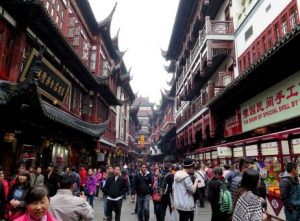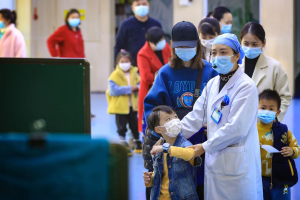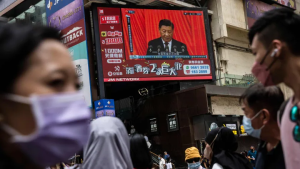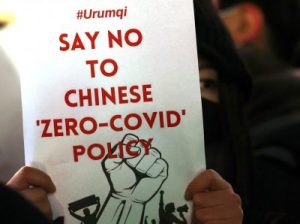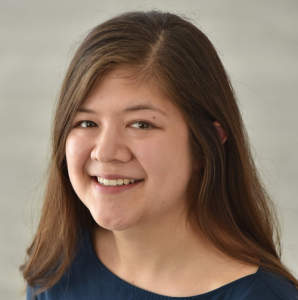Op-Ed: Prof. Xiaojun Li writes about the findings of his recent study on Chinese public opinion of developed countries
Prof. Xiaojun Li’s surveys from before and after the 2020 US presidential election reveal “patterns [which] suggest that the underlying trends in Chinese public opinion were stable during those three months and will likely remain so in the foreseeable future.”
Prof. Paul Quirk discusses Marjorie Taylor Greene’s motivations amidst speaker of the House voting
Representative Marjorie Taylor Greene’s support for Kevin McCarthy may be difficult to explain, notes Prof. Quirk. “Her mission has always been about promoting herself through conspiracy theories, outlandish provocations, and ultra-Trumpism.”
Prof. Yves Tiberghien calls China’s COVID-19 policy “unsustainable” in CBC interview
“It’s difficult in the sense that [China has] reached an impasse, where they have forced everyone to do perpetual tests, to have sudden quarantines at home, lockdowns, and nobody can plan their life. The economy is in freefall,” says Prof. Tiberghien.
Prof. Paul Quirk comments on possible Georgia runoff election results
“The way Congress works nowadays, most voters don’t care very much about a Senate candidate’s character, intelligence, or experience,” says Prof. Quirk. “But the main thing is how he or she votes in numerous party-line votes that shape the direction of the country.”
Prof. Yves Tiberghien interviewed about Chinese COVID-19 policies and protests
On the difficulty of President Xi Jinping’s COVID-19 decisions moving forward, Prof. Tiberghien says that “the exit is difficult because if they give in to the public to save the legitimacy of the regime, they’re going to have a big number of cases and of deaths.”
Prof. Yves Tiberghien & MA Candidate Dustin Lo discuss China’s zero-COVID policy “trap”
“China’s zero-COVID response to the Omicron variant after March 2022 has become all-encompassing, unpredictable and economically ruinous,” they write in this op-ed. “A logic of political control has pushed aside pragmatic health and economic policy,” leaving the Chinese public frustrated.
Scope Conditions Episode 3.2: Repression Through Political Trials with Fiona Feiang Shen-Bayh
Dr. Fiona Feiang Shen-Bayh discusses the role of courts as political institutions, as well as her new book, ‘Undue Process: Persecution and Punishment in Autocratic Courts’ in this episode of Scope Conditions Along with Profs. Alan Jacobs and Yang-Yang Zhou.
“Probing Biden could be risky,” says Prof. Quirk about possible subpoena from Republicans in the House of Representatives
Prof. Quirk notes that although “the new House Republican majority seems ready to bet the farm on making an investigation into Hunter Biden’s business dealings the top item on their agenda,” their bet may not be as successful as they hope. The move has clear risks and questionable payoffs, he says.
PhD Graduate Sarah Lachance’s dissertation explores how voters deal with uncertainty during elections
PhD graduate Sarah Lachance examines how voters respond to polarization, strategic voting in proportional-representation systems, and policy ambiguity
Prof. Paul Quirk discusses Vice President Kamala Harris’ influential role in the 2022 midterm elections
Prof. Paul Quirk addresses claims from the party that “every candidate she campaigned for won their elections,” noting that instead, this may suggest that Vice President Kamala Harris “largely stayed away from the toughest races, where a small boost from her visit could have made the difference.”
